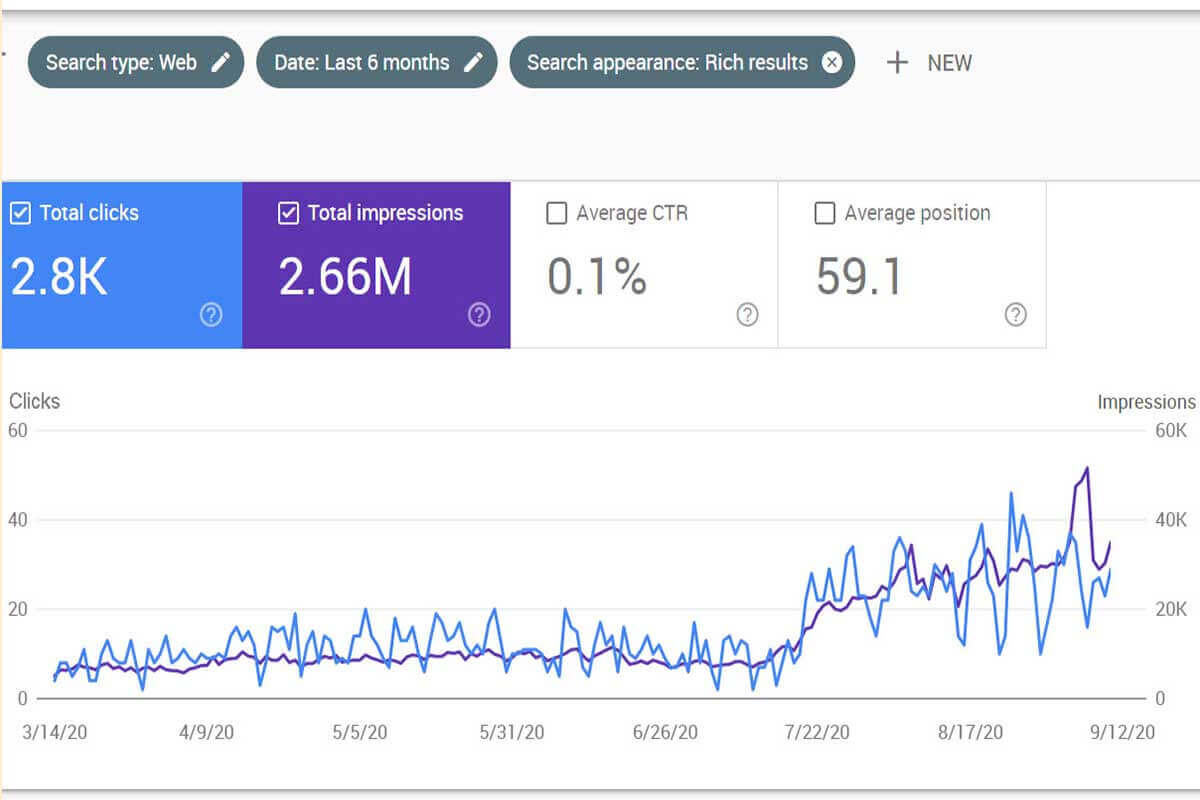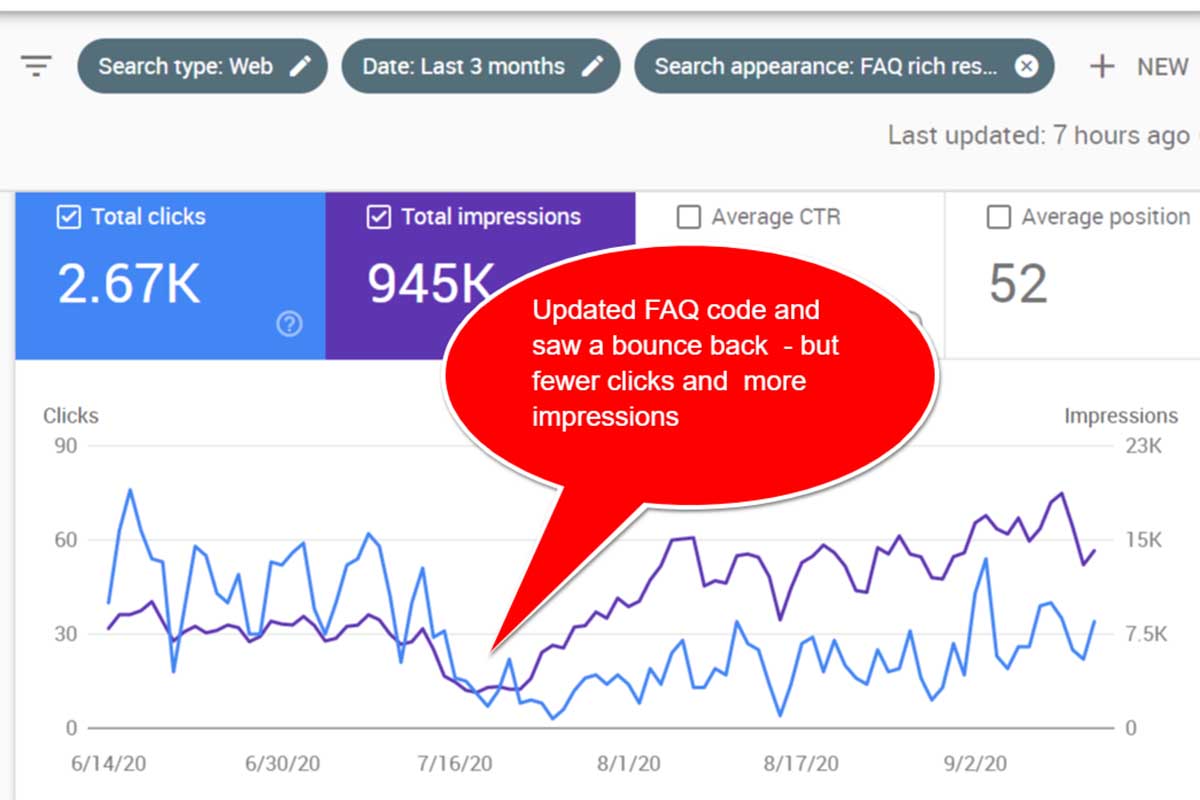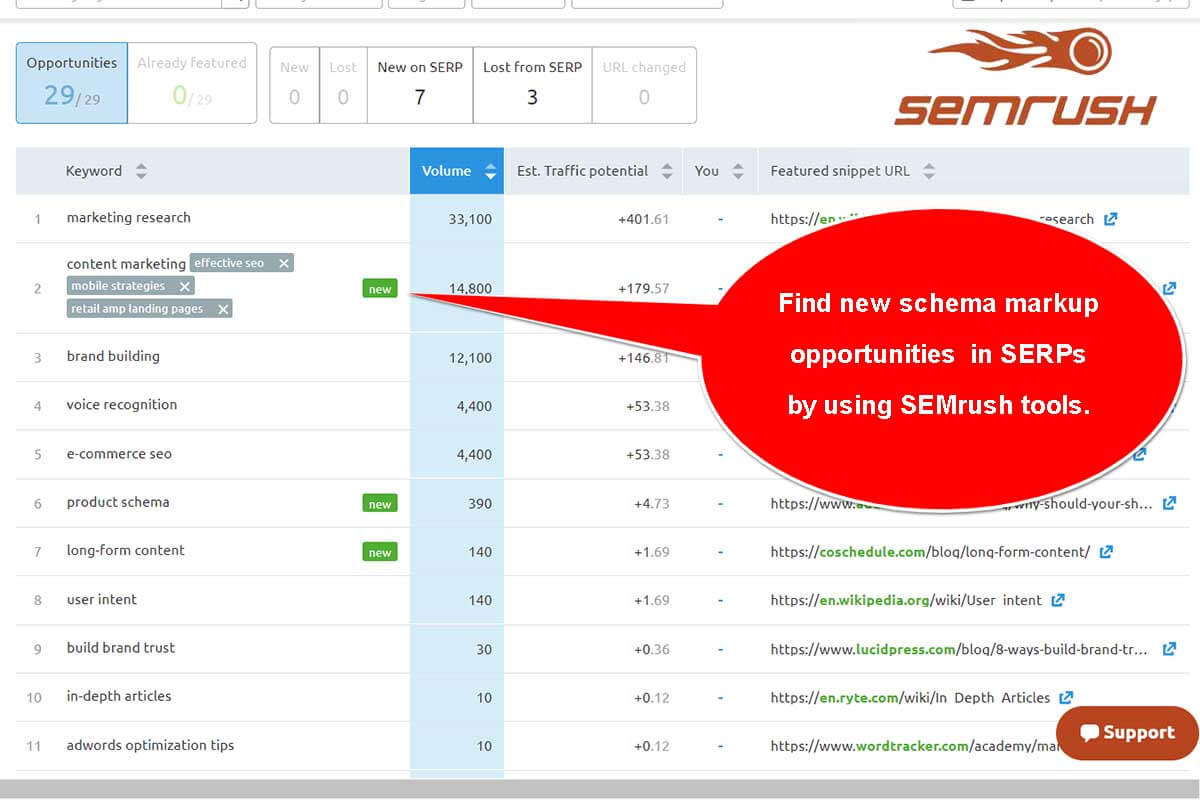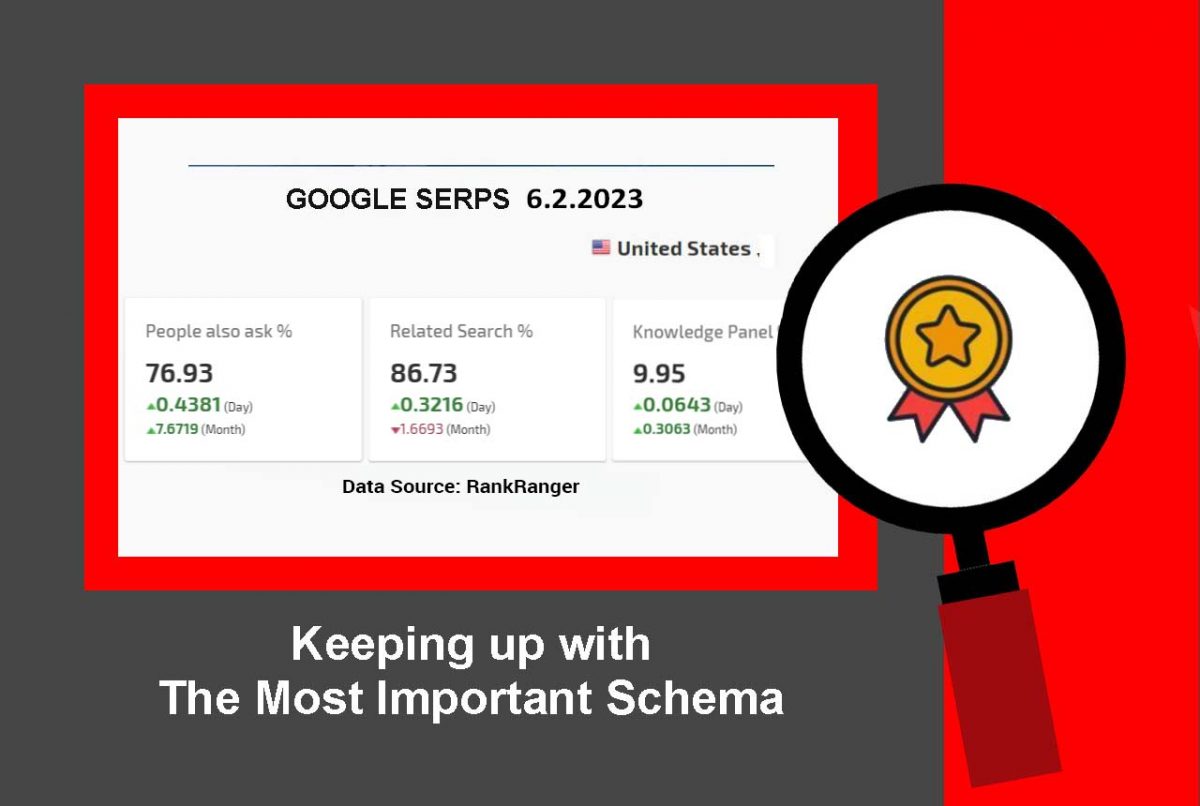How to Find the Most Important Schema Markup Types
Updated 8.16.2024
Multiple types of schema help search engines understand and disambiguate what your content is about.
In the world of new AI Overviews, you can benefit from SEO schema so that your business and what you do is fully understand. Using a range of essential schema markup types for article pillar content will give your business a boost. It is a key means to connecting entities within your Knowledge Graphs across major search engines. You may know that schema is an arm of Artificial Intelligence useful to grow your audience, but wonder where does a business site begin?
What steps best determine the most important schema to use?
Step 1. Find the best Schema type that describes your business and aligns with your business plan. it may be schema.org/MedicalDevice or schema.org/FoodEstablishment. If nothing seems to be a good fit, keep checking back as this list is growing.
The MicrodataGenerator.com is helpful to generate your NAP which should thread closely with your Google Business Listing. It is important that you select the best business category and fill in all fields correctly.
Step 2. Build out your business entities and services with as much schema markup as make sense to explain it. A schema markup specialist can leverage additional ontology to add clearer data; additionally, we prefer Productontology when facing a lack of current data types for a specific niche industry. By converting it into a Productontology URI using id schema can be modified to better suit your line of business.
Step 3. Decide how you are going to create your code and implement it on your website. Some schema generating plugins and API’s are intuitive enough for most any SEO to use. A coder who understands the JSON-LD language is your best option, as Google has stated a clear preference for JSON markup. They can “think” semantically and make the process less prone to mistakes and more effective overall.
Step 4. Write your SEO schema using natural language processing as much as possible. The words you choose to use matter and should resonate with the search intent and needs of your audience.
Step 5. Set in place a regular auditing schedule that catches errors and can help with your strategic site mapping. Some schema will be depreciated over time, other schema types will add new required entities, and other times, a brand new schema will emerge. This will help you avoid schema redundancy, which means having multiple copies of the same data in your database. For example, problems can be caused due to redundancy and repeating adding answers to the same questions across multiple pages.
While there are common types of schema, your niche and business goals determine where to start implementing structured data.
What Questions to Answer to Narrow your Schema Types by Importance?
* If you sell products and your core audience in on moible, you might prioritize product schema that validates on AMP pages.
* If you use Google Ads, then getting your ad first and at the top of SERPs matters.
* If your core business service is to treat a specific medical condition, then focus on implementing valid MedicalCondition schema. If you are not in the medical technology niche nor see patients, there is no reason to consider it.
* Whether it is best for your business to use the Organization Schema Entity or the LocalBusiness Schema Entity depends in part on the scope and type of business. Organization has broader usage coverage that includes more websites categories. It will work for computers, technology, electronics, lifestyle, healthcare businesses, those that fall in the arts & entertainment business niche and 20 other categories. Consider using the LocalBusiness Schema Entity if consumers must come to your brick and mortar shop or you must drive to them within a small given area.
* If you are a news site or building up your author status, then Person and Author schema becomes more important.
Does all or any Structured Data Effect Rankings?
Currently, it is not realistic to expect a direct boost in your page’s organic ranking as a result of adding schema; however, you may gain more relevant traffic from search, which is a critical starting point in the consumers purchasing journey. Just how structured data will affect rankings in the future has yet to be seen, but its value is indisputable. We’ve conducted many experiments and do find that markup improves visibility in immediate Google real estate and may positively improve click-through rates.
Continual research and testing indicate that search results with more extensive rich result snippets (like the ones generated by using Schema) are enjoying a better click-through rate. For best results, Schema markup implementation can improve how your audience responds to your brand on the SERPs. Read our E-Commerce Schema Markup Guide to help you prioritize your eCommerce SEO.
12 Most Important Schema Markup Types
What are the Essential Schema Markups Every Business Needs?
Schema markups are commonly used to indicate:
- Articles: Includes TechArticle, NewsArticle, and ScholarlyArticle.
- Event.
- Products and Offers – includes services.
- Person – great to build authorship.
- Organization.
- Local Businesses.
- Reviews.
- HowTo schema.
- Author.
- Breadcrumbs – assists user navigation.
- FactCheck – build trust by providing factual and sourced content.
- Datasets.
Google Search Console – Rich Results Status Report Known Issues
What GSC schema validation and reporting issues does Google recognize?
The tech giant acknowledges existing issues in the Google Search Console. Check what they are first and then report and offer feedback on any other features or issues you come across. Use the GSC Feedback system that is handy right in your navigation bar.
Here is the answer according to Google:
- Some issues have long names that are not easy to understand.
- If your site has a very large number of issues (whether or not there are active instances), the report will show only the first 200 issues, sorted by importance.
It’s really exciting how schema lets businesses inform search engines of what’s most important to them.
Search marketers have enjoyed multiple methods of supplying “data” for years; other forms are microdata and RDF. Advanced schema structures have emerged and are rapidly improving search opportunities. It’s now easier to implement; nested coding avoids bulk and redundancies.
You want to add meaning and value, not just more code that doesn’t benefit the reader or the page. For starting point, businesses of all sizes should either start with Local Business schema or Organization schema to define who they are.
What are common structured data mistakes?
- Schema markup is added to pages that are too thin to rank.
- Spending too much time on schema markup that provides little benefit.
- Relying on too many plugins is an activity prone to generating conflicts and unwanted schema errors.
- Lack of knowledge and/or adherence to Google’s Guidelines for a specific data type.
- Reacting too quickly to SERP fluctuations before thorough testing and losing gains that bounce back.
- A lack of follow-up checks using schema audits to quickly identify updated schema requirements.
- Missing semantic ids that associate things within the same graph and make sense of your content.
- Product schema lacks full validation and/or is on a category page versus a page selling a unique item.
- Manipulative efforts.
It is likely to be flagged as manipulative if you are using Microdata that does not align with what is said in your content. Search engines will ignore hidden microdata structured data markup and distrust your markups over time. Stick to marking up content that is visible on a page, and placing it in close proximity to where it fits the content located on the page.
Warnings in your Search Console help identify incomplete data fields. A schema expert is the best one to keep an eye on the inconsistent schema with the code that’s on that particular page. It should be more than just eliminating errors and warnings. Use it to build your eCommerce product pages with schema markup. When added, make it useful to help consumers find the products, services, and answer that they are seeking in search.
Going beyond essential schema markup that all sites need, what most businesses what is a competitive edge.
What Schema Types Move past Basics into Advanced Semantics?

Our current favorite types of schema implementation for a competitive edge:
- LocalBusiness with hasMap – for Local SEO, and is well built out with
sameAsandadditionalType. - FAQ – search is much about getting the right answer fast.
- HowTo pages – responding to needs for instructional content.
Before we generate any schema markup, gathering information is key. This SEO strategy task is typically the most time-consuming part; however, it makes the entire process more efficient and the end results more effective in the long run.
While schema is not new, the ways to implement structured data markup are expanding and offer exciting means to empower businesses to inform search engines of what’s most important to them. You can push out the content and details you want in ways that you want to be represented in SERPs, including Knowledge Graphs.
With any of these, maintain your focus on the “main” aspect of the business’s profession and specific topic of that page. Use in-depth content and highlight it with markup to help it be findable by the persons that are searching for it. Before you dive into the 3 on the above list, let’s answer additional popular questions that impacts decisions about investing in schema markup types.
Why are People Also Ask and FAQ Schema so Volatile?

People Also Ask Boxes (PAA) may display in different positions on the SERP. Given all the questions that people ask by either text or voice, search engines work hard to evolve to meet the needs and how to do so with matching accurate answers fast. We are paying close attention to this feature as lows and highs emerge.
As you can see in the image above, Google is an Answer Engine, and we needed to update our schema code to align and climb back. Distinct from featured snippets (which appear always at the top of the SERP), PAAs can be located in several different parts of the page. Providing solutions and answers to top questions is a huge part of how the web is used. Market research reveals the best types of schema to use.
It’s important to stay on top of schema errors that show up in your Google Search Console, new Google schema types that emerge, and any depreciated code. An essential way to manage your site for improvements across the board is to schedule a fresh Technical SEO audit at least monthly.
Implementing Schema markup to your HTML, whether you use an API, plugins, or hand-code it, improves the way your web pages are presented in SERPs. Enhance the rich snippets that are displayed beneath your page titles, and in product carousels, People Also Ask boxes, Knowledge Panels and more. They help your business stand out visually.
Embrace schema markup types that work for voice-activated searches.
Semrush led a Voice Search Study: Factors Influencing Search Engine Rankings in 2019 which revealed that the majority of answers served via voice search were marked up with some form of schema. Published June 5, 2019, author Olga Andrienko states that “70% of all answers returned from voice searches occupied a SERP feature (with 60% of those returning a Featured Snippet result)”. Statistics like this indicate why prioritizing answer schema types is important.
What are the Best Schema Markup and Validation Tools?
Schema automation is easier with schema generators and schema testing tools:
- Google Rich Results Testing Tool – tells you how Google trusts your schema.
- InLinks via Dixon_Jones lets you modify schema.
- JSON-LD Generator by Hall Analysis.
- JSON-LD Schema Markup Generator by J.D. Flynn.
- Schema Markup Generator by RankRanger.
- Schema App Tool – meant for authoring, deployment and help with maintenance.
- Wordlift.
- Schema.dev where you can build, test, and deploy.
- Merkle Schema Markup Generator – exports both JSON-LD and microdata formats.
Andrea Volpini of Wordlift stated it beautifully on Twitter, “We want content to be understood by machines, we want to build (SC) Semantic Capital”.
Some say that SEO is harder today. It surely is for the entrepreneur starting out in search engine optimization. With dedication time over the years and passion, we find that semantics and schema offer a way to stand out in SERPs and take a nice level of control over your brand. It requires multiple technical SEO skills to excel above others, which makes a needed difference to keep your search project effective and on track. Gaining aggregate Reviews for product pages that qualify for schema markup is getting harder.
What Recent Changes Rolled into the Schema Core Vocabulary?
Google’s emphasis on helping searchers with purchase intent pushes more Product Schema search results.
The following was added to Google’s Product Schema markup documentation page on 2021-01-22.
“Price drop: Help people understand the lowest price for your product. Based on the running historical average of your product’s pricing, Google automatically calculates the price drop. The price drop appearance is available in English in the US, on both desktop and mobile.
To be eligible for the price drop appearance, add an Offer to your Product structured data. The price must be a specific price, not a range (for example, it can’t be $50.99 to $99.99).”
New schema entities add to the types of schema markups ready to use:
For the enthusiast who wants to know the current developments with schema markup, set up an alert and bookmark the schema.org releases page. It’s a bulleted list of all updates and the latest vocabularies in their index that is continually updated. The most recent release, added several items to its Core Section, like improving support for controlled taxonomies for the keywords field.
Highly competitive healthcare spaces, it’s best to leverage the latest SEO schem formats. For example, if you are in the dental marketing niche, Schema.org released version 24.0 added vocabulary for describing types of digital sources and new clarifying schema markup subtypes for Physicians.
Two others are: the supertype of Question should be Comment, by analogy with Answer, possibly impacting SERP QandA schema types, and a changed description to reviewBody in a Review example.
E-Commerce sites may soon benefit from the pending two properties size and pattern for type Product to support common product variant dimensions. Additionally, it’s in pending status just how you can add a ProductGroup type to allow modeling of a group of products.
SUMMARY
To be competitive today, you need to be present in People Also Ask boxes, quick answers, and Product Carousels, if you are in retail. There are key reports in your Google Search Console Insights that can help you gain fully enhanced rich results.
Schema logic should guide your use of schema generators and schema testing tools.
Call Hill Web Marketing at 651-206-2410 to partner.
For help creating an effect search marketing strategy, call Hill Web Marketing: 651-206-2410 and request your Essential Schema Markup Audit
